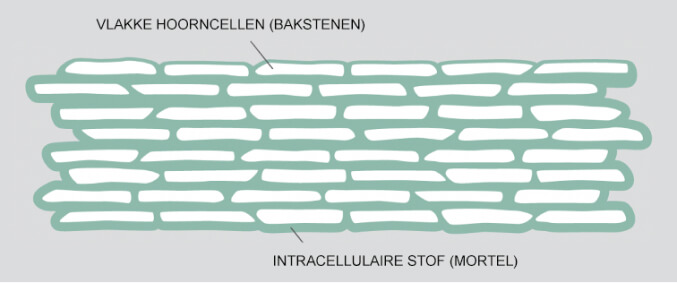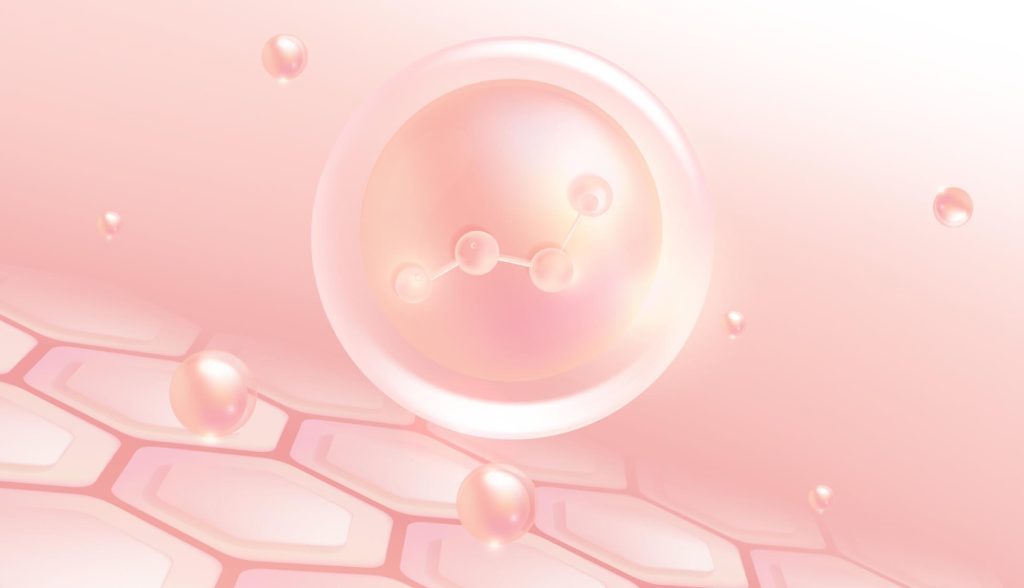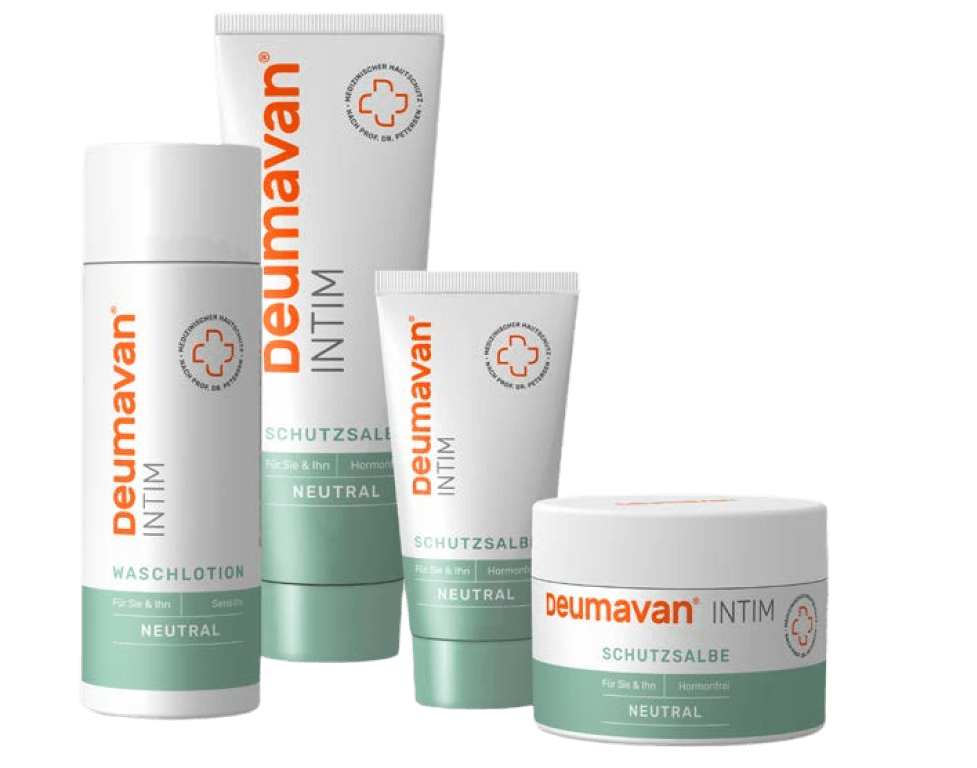The Intimate Area
The vulva and vagina ensure that sexual intercourse is accompanied by sexual pleasure. For this purpose, the vulva is very delicate and sensitive. As a result, it can react to the smallest skin damage with intimate discomfort.
The pubic bone and labia majora are protective fat pads.
While the vulva is mostly covered with skin, the vestibule, the area between the two inner labia that belongs to the vulva, and the vagina are covered with mucous membranes.
The soft and sensitive skin in the outer genital area turns the vulva into an erogenous zone. This causes the skin in the genital area to react to even the smallest skin damage with pain, itching, burning, or other intimate discomfort. These complaints can be very unpleasant and can lead to an impact on a woman’s quality of life and sexuality.
This is especially true for chronic conditions such as: vulvodynia, psoriasis, lichen sclerosus, or vaginal dryness due to menopause. These conditions cause a dry, damaged, and/or hypersensitive intimate skin of the vulva.
The use of Deumavan protective ointment can relieve or even reduce intimate discomfort in the vulva.
In case of unclear or prolonged intimate problems, we recommend contacting your general practitioner or gynecologist.
The skin of the intimate area: sensitive and strong at the same time
As an erogenous zone, it is delicate and sensitive; as the outer body shell, it is resistant to pathogens and foreign substances. A dual role that the skin in the intimate area can only fulfill if it is smooth and supple.
Like all skin, the skin in the intimate area is a contact surface between the body and the outside world. This makes it an essential protective and defensive organ. The skin prevents pathogens and other foreign substances from penetrating into the deeper skin layers. At the same time, the skin in the intimate area is a very sensitive sensory organ, an important erogenous zone of the woman. Therefore, the intimate skin is naturally thinner than other skin areas and numerous sensitive nerves run through it. Although the skin in the intimate area is very thin and sensitive to touch, it still needs to have a strong defense against external influences.
The skin in the intimate area is heavily stressed in daily life: through contact with urine and feces or by pathogens. Also mechanical stress on the skin from: friction from tight clothing or underwear, rough toilet paper, sports (e.g., cycling or horseback riding) or prolonged sitting. These and many other influences can severely stress or even damage the delicate skin in the genital area.
The structure of the skin in the intimate area
The stratum corneum is the uppermost and most important layer of the skin barrier and is structured like a brick wall (see figure). This layer is difficult to penetrate for foreign substances and external influences.
Flat cornified cells act as “bricks” that lie on top of each other in multiple rows and are offset from each other. Between the cornified cells is a kind of “mortar” (intercellular substance), which mainly consists of fats (approx. 80%). The stratum corneum is covered with a paper-thin water-fat film (hydrolipid film) formed by the sebaceous and sweat glands. The skin has a slightly acidic pH (pH 5.5) which repels pathogens.


